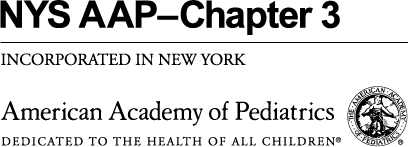Dr. Agrawal is the new director of the Child Advocacy Center at Lincoln Medical Center in the South Bronx, where she practices child abuse pediatrics and runs the center’s Community Pediatrics residency rotation. Her persistence and ability to build coalitions have led her to advocacy success in a variety of areas, including firearm safety. Dr. Agrawal also has a strong focus on bringing advocacy training to young doctors and medical students.
What motivated you to become involved in advocacy?
When I was in residency, my father had a chronic illness, and the doctors just prescribed medication, but so much of it was psychosocial–how it effects the family, how debilitating it is, and I thought, you know what, you need to help families other than just writing prescriptions. You need to support the families–ask them how they’re doing–support the whole family, and that helps the patient. So I started becoming more of an advocate through that personal experience. And then I didn’t do much through residency, and then in fellowship, interestingly enough, we learned about chronic illnesses, and I learned about the whole picture. It’s not just taking care of a patient and getting prescriptions, but also thinking about the social determinants of health, and how their housing, their job, all these things affect their health, and I felt the need to help promote the social determinants of health as well.
How did you become involved in firearm safety?
When Newtown happened, I was said, that’s it. A light goes off, and I have to do something. When I get involved in an issue, I go out and I learn about it, I find people who are doing it, new people who are interested in it, and I build a coalition. I went to Doctors for America this time, and I became the national gun violence prevention coordinator for this organization. What I do is communicate with doctors across the country on this issue, help educate them, and help them lobby their legislators. Locally, I work with New Yorkers Against Violence on this issue, so we send doctors to meetings on Capitol Hill and in New York City to try and lobby for stronger legislation here in New York. Whenever I do an advocacy topic, I work at it from whatever ways I can, not just one way–so it might be clinical, it might be community, and it might be national, and that’s the way I’ve done gun violence, because I feel like it needs to be attacked from all ways possible. For example, my residents here have been doing waiting room talks, and they did one on gun safety, which is not an easy topic to do. It was National Ask Day, which is an initiative of the AAP, and it teaches parents to ask if there’s a gun where their child plays. You ask, my kid can’t swim, is there a pool at your house? My kid has allergies, are you going to give my kid peanuts? Do you have a gun in your house? It should be part of keeping your kids safe.
What has been one of your biggest advocacy successes?
In doing all these things, I realized, myself and a bunch of other doctors know a lot about advocacy. Would students like to learn about this? So at the end of May, we first formed a physician advocacy coalition. We brought together all these existing medical organizations in New York City and said to them, would you like to host a physician advocacy workshop for your members? Physician advocates are few in number; how do we create more? Let’s bring our resources together and teach these students these skills that we have. We hosted the first physician advocacy workshop for students in New York City through this coalition, and it was amazing. We had standing room only. It was called Advocacy 101; we did an hour on just general advocacy, what does it mean to you, and how to incorporate it into your daily life; and then we did specific breakout groups on legislative advocacy, media advocacy, and community advocacy. We got a lot of positive feedback. And this is through coalition building, just like any other advocacy topic–just teaching advocacy in itself was great to bring together all these people around this. Each organization had its own agenda, but we all agree on advocacy. It’s something that we can share our knowledge on. It was really inspiring. What’s happening now is that advocacy is taught later on in life, and I think the goal here is to bring advocacy to med students and undergrads, and to integrate it into their daily life, so that they understand that this is part of my job, part of being a doctor.
How do you make time for advocacy in your life?
I do it everyday because it’s part of my job in child abuse, to advocate for children’s health and safety. The community advocacy I find a bit of a challenge, because in any advocacy you start by developing relationships with the community or with individuals around that issue, so I’ve been brokering the relationships. So it’s been slow going, but we’re doing it, I’m doing it with the help of the residents and medical students. I had a medical student recently who did his rotation with me, and he said, wow I didn’t really know about advocacy, I would have gone into it. I didn’t say anything to him, but advocacy isn’t something you go into, it’s something you just do, as part of your job as a plastic surgeon, a dermatologist, whatever it is, you can advocate for your patients on an individual level, on a community level, on a legislative level. You can do it all; you don’t have to go into advocacy. So I think that’s my goal through mentoring residents and medical students, to have them see advocacy as part of their daily life in whatever they choose to do.

